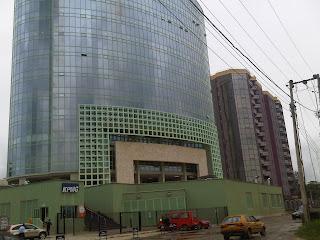Between Capitalism and Marxism: What Way for the Power Industry in Nigeria?

By
Mohammed Dahiru Aminu
The key and most elemental feature of free market economy is that it is a scenario where the forces of demand and supply is allowed to dictate the production, production quantity, price per quantity, and also consumption. Because of the common knowledge that resources are often possessed by individuals and companies, the ‘drivers’ of the free market economy are usually the gains and the returns from the investment. In order words, profit and/or gains is what decides the fate of the free market economy.
Like all economic approaches, the free market approach, and in this context, that is in the alternative energy industry has its merits and its limitations. Like in most or all economic models, scholars of economics are yet to come to unanimity as to whether it is best to adopt the free market approach or not.
In this essay, a brief is given on the merits and limitations of the free market approach or economic model. It will also show whether it is best to adopt the free market approach or not as the finest way of increasing the use of alternative energy measures. It, at the end, justifies the answer by giving an opinionated argument on why it is necessary to adopt the free market approach or not.
The free market model is fraught with merits and its demerits. But it is sometimes argued by scholars in economics and other social sciences that in reality, as opposed to make-believe, the free market economic model does not practically exist.
Scholars argue that even the so-called champions of the free market model, e.g. the United States, there are many areas of government intervention, thus, the discerning deficiency of the free market approach. For example, governments are known to intervene even in the realms of the free market approach for reasons of checking unfair practices in trade. Beyond that, the mechanism of tariffs and import quotas set by the government also serve to impede importation and import quantities.
However, some of the advantages of the free market approach is that apart from the fact that the market is driven by ingenuities and innovations of the individual as well as built on the notion that the more the individual’s hard work the more the rewards and success from the market, free market economies grant the people a power of choice.
The free market approach also ensures that a wide variety of services and goods are produced to meet the wants of the consumer; it responds hastily to the wants of the consumers for fear of the forces of competition; it might also ensure constancy of updates in technology in the sense that it encourages the use of better methods and better machines in the production of goods and services. Other limited merits of the free market model is that it provides for a very high mobility of income; a sufficiently higher GDP; and ensures that monies are used to assist social programs.
On the other hand, from the Socialist or Marxist argument, free markets are a disadvantage in that it has no major checking mechanism that breaks the disparities between the haves and the have nots. The free market approach, scholars of Marxism argue, only makes available a system in which every individual earns as per his/her capacity or ability; hence this further ensures the disparities between people in the society.
Some of the fundamental disadvantages of the free market are that it sometimes maximizes profits at the detriment of the consumers by being inconsiderate to the potentially harmful physical and social impacts of the products produced. This can be dangerous if it happens in the alternative energy industry, if adopted.
Other limitations or demerits of the free market approach are that it ensures that factors of production are only employed if and when it is profitable to do that. The free market therefore can fail to provide certain alternative energy goods and services to consumers who are in need simply because it is unprofitable to provide such.
Although there are many arguments that seek to justify or vilify the free market approach as an economic model in all sectors of the economy including in the alternative energy measures sector, the compelling evidences of history has proved beyond reasonable doubt that free market economic models operate relatively better than government-intervened approaches. Free market economic models have shown to be more answering to the needs of the customers; it brings an expansive array of products than other economic approaches. Again, because of the reality of severe competitive pressures, companies and business outfits alike must produce better and better products at cheaper costs with more efficiency of use.
It is therefore better, that the free market approach (as opposed to a government-intervened approach) be adopted in the power industry in Nigeria as the best economic model that would ensure and increase the prudent use of energy measures, in the short-, medium-, and long-term.
Mohammed Dahiru Aminu can be contacted at mohd.aminu@gmail.com
Established in March 2013, JarusHub is a Nigerian information hub with focus on career and management. It is rated Nigeria's most authoritative destination for online career resources. It parades an array of Nigerian professionals who share their career experiences with a view to bridging career information gap and mentoring a generation to success. Whether you're a student, a recent graduate or an established professional, or even an executive, you will always find something to learn on JarusHub. All enquiries to jarushub@gmail.com or 0808 540 4500. Facebook: www.facebook.com/jarushub; Twitter: @jarushub or @mcjarus.
Attend JarusHub’s 2024 Seplat Assessment Center Coaching
October 29, 2024
1 comment
Let us have your say by leaving a comment belowCancel reply
Recommended For You
-
QUESTION & ANSWER ON FRM, CISA, ACCA & GETTING JOB IN A BIG 4
February 22, 2016 -
KPMG OR MCKINSEY? DILEMMA OF A GRADUATE WITH 2 JOB OFFERS
August 7, 2016 -
2014 Global Enterprise Experience for Students
August 13, 2013





Am not aware of anywhere in the world where absolute, perfect and complete capitalism or socialism is being practised. Not even in the defunct Soviet Union where socialism gained its popularity.
Even Adam Smith, who is widely believed to be the father of capitalism couldn’t help government intervention and this gave birth to macroeconomics- government intervention. Smith invincible hand was no where to be found when the great economic depression of 1930 loomed.
In an unregulated capitalist economy like ours if you don’t have money then go to hell. Fine, the privatization of the energy sector would be the best should government put in place all the necessary measures- institutional framework that will make it work. This is where most third world countries are missing the line.